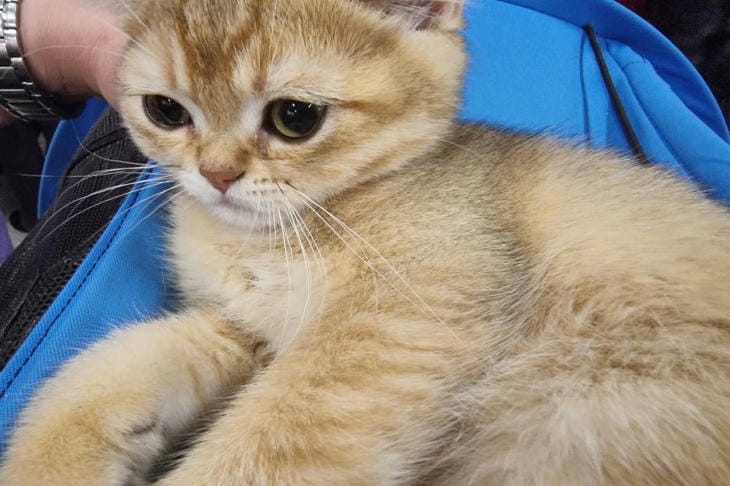Cat behavior often baffles even experienced owners.
Particularly mysterious is the desire of some cats to rub against complete strangers.
This gesture, so familiar to the hosts, takes on new meaning when its recipient is a stranger.

Marking the territory
One of the main reasons why cats rub against objects and people is considered to be marking territory. Cats have special glands located on their muzzle, sides and tail that secrete unique pheromones.
When a cat rubs against a person, it leaves its scent on him, thereby "marking" him as part of its territory.
In the case of strangers, this behavior may mean that the cat accepts the new person and includes him in its "safe" circle.
Showing friendliness
Rubbing against a stranger also serves as a way of expressing friendliness and interest.
Cats, unlike dogs, do not have the habit of jumping on strangers or actively greeting them.
Instead, they use more subtle signals, one of which is rubbing. In this way, the cat demonstrates its disposition and readiness to interact.
Collection of information
The cat's nose is an extremely sensitive organ. Rubbing against a person allows the cat to gather more information about him through smells.
A cat can determine whether a stranger has other pets, where they have been, and even certain aspects of their health. This process helps a cat evaluate a potential new acquaintance and decide whether to continue the interaction.
Seeking attention and affection
Sometimes cats rub against strangers simply because they are looking for attention and affection. If a cat lives in a home where it lacks tactile contact, it may seek it from strangers.
This behavior is especially typical for cats that are accustomed to frequent interaction with different people, for example, those living in cafes or shops.
Stress and anxiety
Paradoxically, rubbing against strangers can be a sign of stress or anxiety. In unfamiliar or stressful situations, some cats will scent mark as many objects and people as possible to make the environment more familiar and therefore less frightening. This behavior serves as a way for the cat to self-soothe.
Genetic predisposition
The tendency to be outgoing may be genetic. Some breeds of cats, such as Siamese or Abyssinian, are known for being friendly and eager to interact with people. These cats are more likely to show interest in strangers and rub against them.
The influence of socialization
Early socialization plays a huge role in shaping a cat's behavior. Kittens that have had positive experiences with different people from an early age grow up to be more open and friendly.
These cats are more likely to show interest in strangers and seek contact with them.
How to respond to such behavior
If an unfamiliar cat rubs against a person, it is best to allow it to do so without showing aggression or sudden movements.
This behavior is a sign of trust on the part of the cat. However, you should not force your attention on the cat or try to pet it if it does not show interest in it. Respect for the cat's personal space is an important part of interacting with it.
When to be wary
While rubbing against strangers is generally considered normal behavior, in some cases it can signal problems.
If your domestic cat suddenly starts showing excessive interest in strangers, it's worth paying attention to. This change in behavior could be a sign of stress, lack of attention at home, or even health problems.








